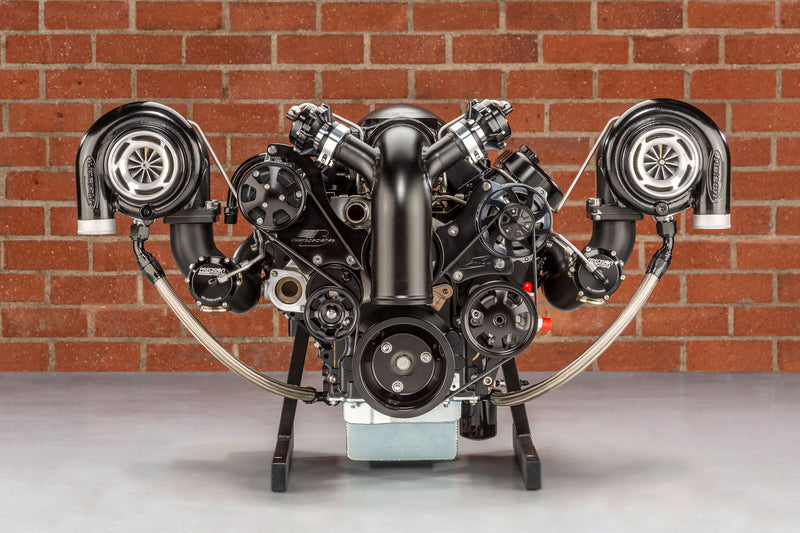The Effect of Cutting-edge Engine Technologies on Energy Performance and Environmental Sustainability
In the world of transport and commercial equipment, the continual quest for enhanced energy performance and reduced environmental effect has resulted in substantial improvements in engine technologies. From the progressive shift towards electric and hybrid systems to the assimilation of turbocharging for improved performance, the landscape of engines is developing swiftly. The application of different gas additionally diversifies the options readily available for lasting energy resources. These technologies not just guarantee a greener future however additionally hold the prospective to revolutionize the way we approach energy consumption and ecological sustainability.
Development of Engine Technologies
The development of engine technologies over the decades has been noted by regular innovation and improvement in quest of improved efficiency and efficiency. From the early days of interior combustion engines to the sophisticated hybrid and electric powertrains of today, the advancement of engine innovations has been driven by a relentless pursuit for enhanced gas performance and minimized exhausts.
One considerable landmark in this evolution was the development of turbocharging and direct shot systems, which considerably enhanced engine power output while boosting fuel effectiveness. These modern technologies permitted for smaller, extra lightweight engines that could provide the performance of bigger ones without compromising on efficiency.
Furthermore, developments in materials science have actually brought about the prevalent fostering of light-weight products such as aluminum and carbon fiber in engine construction. This has not just lowered overall car weight yet has actually additionally boosted engine performance by decreasing power losses connected with inertia and friction.
Advantages of Electric and Hybrid Solutions
With the expanding concentrate on sustainability and power performance, what advantages do hybrid and electric systems provide in the realm of engine innovations? Electric and hybrid systems existing countless benefits that add to a much more sustainable and energy-efficient future. One of the primary benefits is the considerable decrease in greenhouse gas discharges compared to standard interior combustion engines. Electric automobiles create absolutely no tailpipe discharges, causing enhanced air high quality and lowered environmental impact. Furthermore, electric and hybrid systems are a lot more energy-efficient, converting a higher percentage of saved energy into propulsion compared to traditional engines. This effectiveness results in reduced energy consumption and operating costs over the lorry's life time. In addition, electrical automobiles provide regenerative stopping systems that keep and catch energy commonly shed throughout braking, additionally enhancing power performance. Hybrid systems integrate the benefits of electrical propulsion with the flexibility of a combustion engine, supplying extended driving arrays additional reading and decreasing range stress and anxiety for consumers transitioning to electrical automobiles. Overall, electrical and hybrid systems play a critical role beforehand power effectiveness and ecological sustainability in the transport industry.
Turbocharging for Improved Performance
Turbocharging jobs by using a generator to require more air right into the combustion chamber, allowing for far better gas combustion and enhanced power why not look here output without a substantial increase in engine size. By making best use of the efficiency of the burning procedure, turbocharged engines can accomplish better fuel economic situation and lowered exhausts, contributing to ecological sustainability. The widespread adoption of turbocharged engines in both gasoline and diesel lorries demonstrates their performance in balancing efficiency, efficiency, and ecological impact.
Taking Advantage Of Different Fuels
Harnessing alternate gas presents an appealing method for minimizing carbon emissions and branching out the power resources used in transport. As the globe strives to battle environment change and reduce reliance on fossil gas, different fuels have gotten substantial attention for their possible environmental and economic benefits.
Biofuels, such as ethanol and Continue biodiesel, are obtained from renewable sources like sugarcane, corn, and algae, offering a cleaner burning alternative to conventional gas and diesel. These gas can be combined with existing petroleum fuels or used in committed engines, offering a pathway to reduced greenhouse gas exhausts and boost air top quality.
Additionally, hydrogen gas cells have actually become an encouraging technology for zero-emission transportation. engines for africa. By converting hydrogen gas into electrical energy to power electrical motors, fuel cell cars generate just water vapor as a by-product, getting rid of harmful tailpipe emissions entirely
Along with reducing carbon exhausts, different gas can likewise improve energy safety and security by diversifying the gas mix and minimizing dependence on imported oil. Accepting alternative gas in transport is a crucial step in the direction of accomplishing a more eco pleasant and sustainable future.

Ecological Advantages and Future Potential customers
Alternate fuels, such as biofuels, hydrogen, and power, deal significant ecological advantages compared to standard fossil gas. In addition, alternative fuels can aid diversify energy sources, enhancing power security and decreasing dependence on finite resources.
Improvements in modern technology continue to improve the performance and cost of alternative fuel lorries, making them a lot more easily accessible to consumers. By accepting ingenious innovations and alternate gas, the course towards a more lasting future becomes increasingly achievable.

Conclusion
In conclusion, innovative engine technologies have played a crucial role in improving energy performance and promoting environmental sustainability. The evolution of engine modern technologies, adoption of electric and hybrid systems, application of turbocharging, and exploration of alternate fuels have all added to raising and reducing exhausts performance.
In the world of transportation and commercial machinery, the continuous quest for improved energy performance and lowered environmental influence has actually led to considerable developments in engine innovations. Turbocharging works by using a generator to compel more air into the combustion chamber, allowing for much better fuel combustion and raised power outcome without a considerable boost in engine size. By optimizing the performance of the burning process, turbocharged engines can accomplish better gas economy and minimized exhausts, contributing to ecological sustainability. Alternate gas, such as biofuels, hydrogen, and electricity, offer substantial ecological benefits contrasted to typical fossil fuels. The evolution of engine modern technologies, adoption of electrical and hybrid systems, utilization of turbocharging, and expedition of alternative fuels have all added to raising and decreasing emissions effectiveness.